Experts explain why children need to get the Covid-19 vaccine
Aussie kids aged five to 11 can access the Pfizer Covid-19 vaccine. Experts answer key questions for parents and tackle some of the unfounded claims.
Australia’s Therapeutic Goods Administration (TGA) has provisionally approved the Pfizer vaccine for 2.3 million children aged between five and 11 years of age and the vaccine will be available to children from January 10 subject to final considerations from the Australian Technical Adversary Group on Immunisation.
To answer your questions, Jane Hansen spoke to Associate Professor Margie Danchin, a paediatrician and vaccine researcher with the Murdoch Children’s Research Institute (MCRI) and professor Robert Booy, an infectious diseases paediatrician and vaccine expert at the University of Sydney.
Q. Children rarely get sick with Covid, why do they need to be vaccinated?
MD: It’s about one per cent of those who test positive, but one per cent of 2.3 million, of course not all will be infected, but it’s still a substantial proportion of children.
RB: The great majority of children will not get serious illness form Covid, the risk of severe Covid rests with children with major problems, immunosuppression, so they have cancer, or have cerebral palsy, Down syndrome and chronic heart and lung disease, but about half of the serious Covid cases happen in previously healthy children for unexplained reasons. We use universal vaccination to protect the ones we can’t predict, who despite being healthy will still get severe disease. About one in 10,000 children who catch Covid may die of it based on US figures, one in 3000 can get the inflammatory syndrome that affects the skin, heart and blood vessels. And one in 100 may get long Covid.”
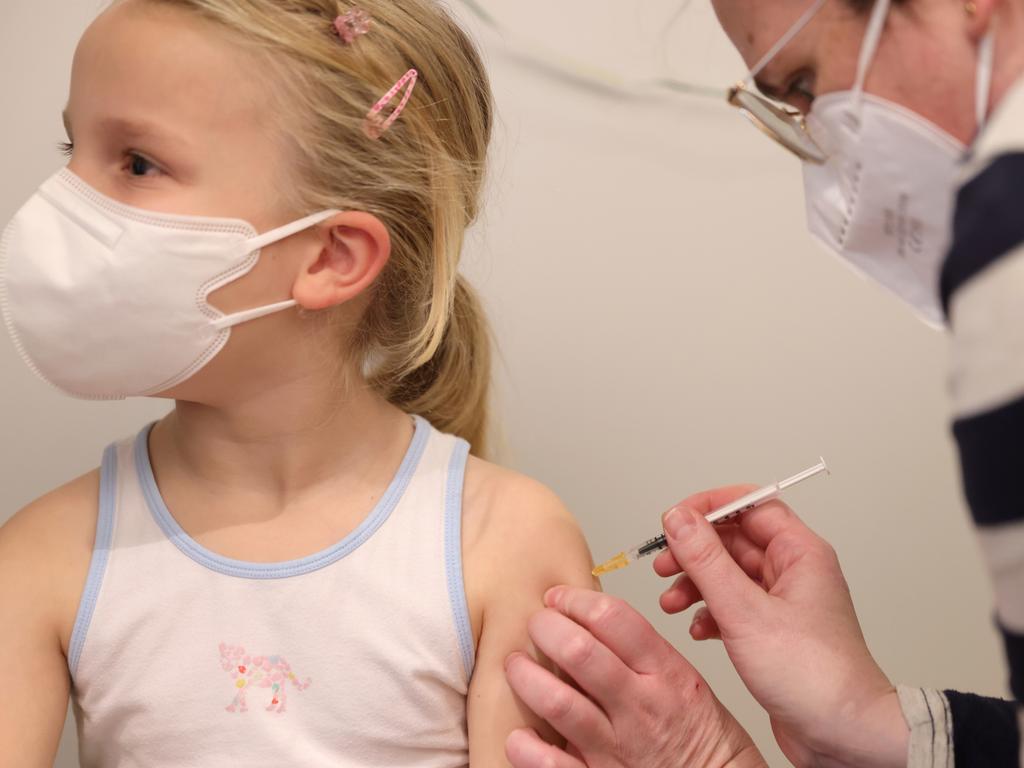
Q. What is the argument for vaccination in kids?
MD: First is to directly protect them so they don’t get sick, severe disease does still occur, especially in children with underlying medical conditions. Second is reducing transmission in both households and schools so kids can attend school safety, and third is they can attend school and have less disruption to their education.
RB: It is to directly protect those vulnerable and looking at healthy kids there is a rare risk of death, especially if you have a medical problem.
Q. We know the vaccine does not 100 per cent stop transmission but it does reduce it?
MD: It definitely reduces transmission, we believe it will reduce transmissions in school.
RB: Vaccinated kids are half as likely to transmit. They are half as likely to get a breakthrough infection and if it is, it will be mild and then if they do have a breakthrough they are half as likely to transmit it, so they are really a quarter or less likely to transmit Covid.
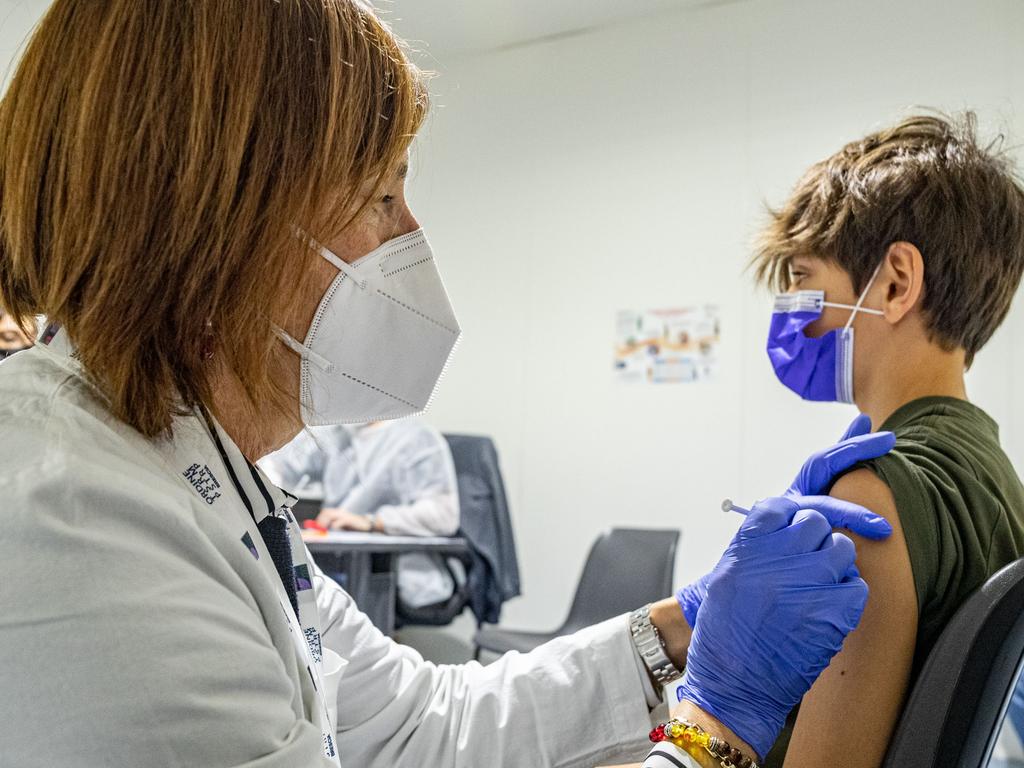
Q. Will the virus seek out the unvaccinated cohort, in this case, kids under 12?
MD: Yes, that is right and we don’t know what Omicron will do, if it will be more transmissible so we just want to reduce kids getting infected in the first place and passing it on.
RB: The virus looks for where it can multiply so it looks for anyone who is unvaccinated.
Q. What is the safety profile?
MD: The common and expected side effects don’t occur more commonly than they do in teenagers and younger adults. The most common is a sore arm, followed by headache and fatigue.
RB: We are still concerned that occasionally they can get myocarditis (inflammation of heart muscle), the evidence is not completely available yet but is less than one in 10,000.
Q. What about the rare side effects of myocarditis and pericarditis(inflammation of the outer lining of the heart) which we have seen in teenage boys?
MD: There’s now been 1.4 million kids vaccinated in the US with dose two and there has not been a vaccine safety signal, what we mean by that is there are not increased reports of either myocarditis or pericarditis above what is expected in the background (unvaccinated) rate in the community for other viruses and causes.
RB: The great majority recover within a week, it is mild.
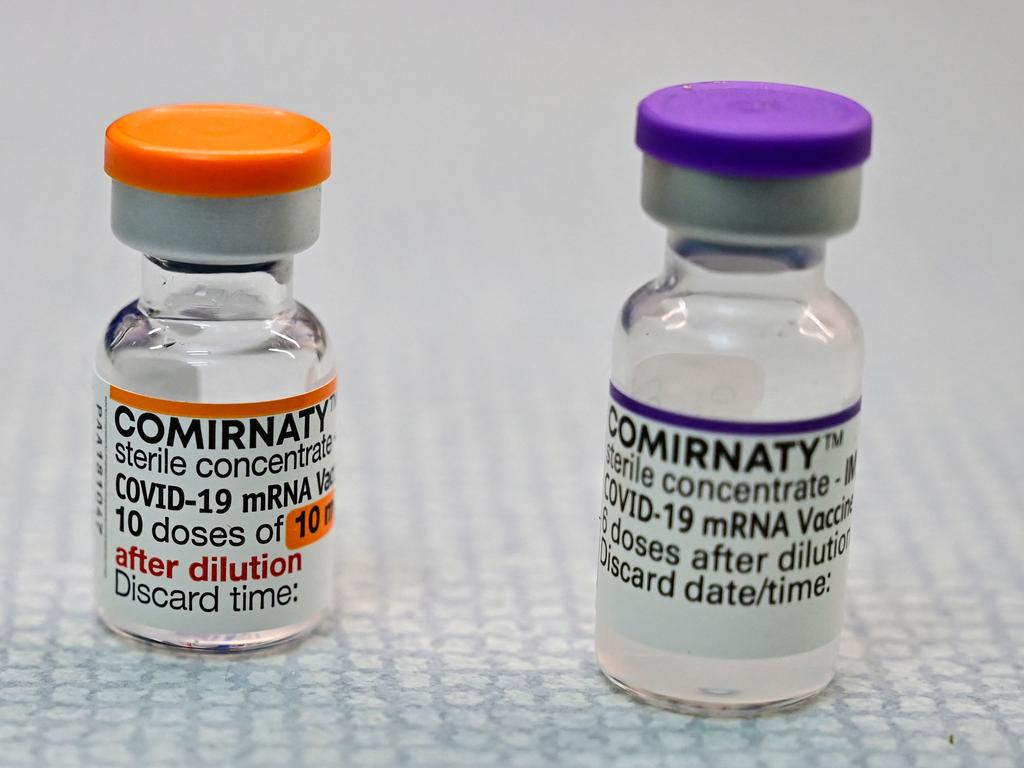
Q. Are the claims that the Covid-19 vaccine could potentially cause infertility cause for concern?
RB: Absolutely not. People have asked whether there might be an impact on the fertility of boys and girls. There is no reason to even speculate about this. We know women who have wanted to become pregnant and have had safe pregnancies after being vaccinated. We know women who have been vaccinated while pregnant and have completed safe pregnancies. There is no scientific reason that the vaccine would affect the fertility of boys or girls — it’s a myth.
Q. What is the dose?
MD: It’s a third of the adult or teen dose and comes in an orange topped vial where the adult
comes in a purple top vial, so it is important the paediatric orange top vial is used to get a correct dose.
RB: It’s a third of the adult dose and only Pfizer is approved for children, not Moderna.
Q. At what interval are they given in children?
MD: It is eight weeks at the moment but they may be reduced to three weeks for quicker
protection if cases increase. But a longer interval may give better long term protection and a lower risk of myocarditis.
RB: You get a better immune response spacing it out to eight weeks and you get better tolerance, fewer side effects with the second dose with an eight week gap.
TEENS LEAD THE WAY WITH COVID-19 JABS
Young teens have embraced the Covid vaccine with gusto, with almost three quarters of 12 to 15 year olds doubled vaccinated.
The Pfizer and Moderna vaccine only became available to the age group in mid-September, but in less than four months, more than 73 per cent have had two doses.
In the 16 to 19-year-old group, who came online just before the younger teens, about 85 per cent are double jabbed.
Prof Mary-Louise McLaws, an epidemiologist from the University of NSW, said while the younger teens had done well, the numbers were not yet high enough and she urged parents to make their child’s vaccination a priority in the school holidays.

“The summer holidays is when we socialise,” she said.
“It takes a good one or two weeks for the vaccine to maximise the immune response.
“So parents need to encourage their child to get their first or second dose now.”
Quirky Kid CEO and child psychologist Dr Kimberley O’Brien applauded the willingness of young teens to get inoculated and said parents should be praised too.
“A big factor in the high take up of the vaccine by teenagers is the support of parents,” she said.
“Adolescents take their cues from their parents. Schools have also been consistent with their Covid messaging.”
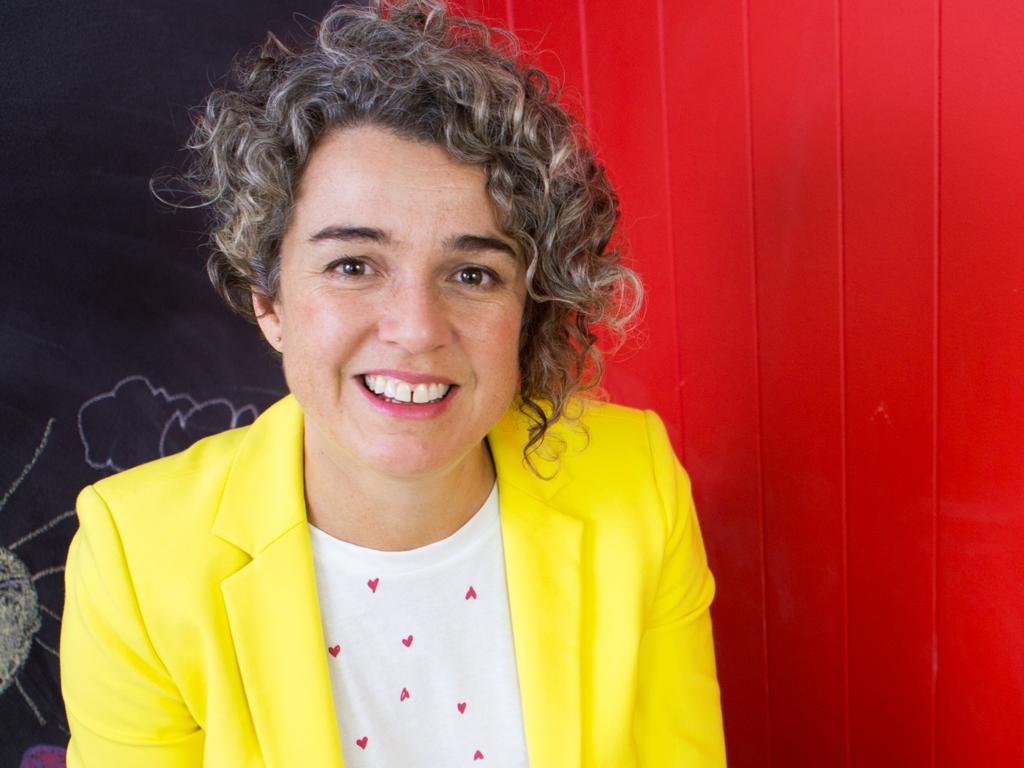
Prof McLaws added that she was impressed with the 12 to 15-year-old age group which is smart and science-savvy.
She said they understood that by having the vaccine they could help protect older family members, as well as other members in the community who may have cancer or are immune compromised.
“Both boys and girls of this generation are already receiving a vaccine against human papillomavirus (HPV), which goes to protect young women in the future,” Prof McLaws said.
“So the idea of having a vaccine to help others, they fully respect that.”
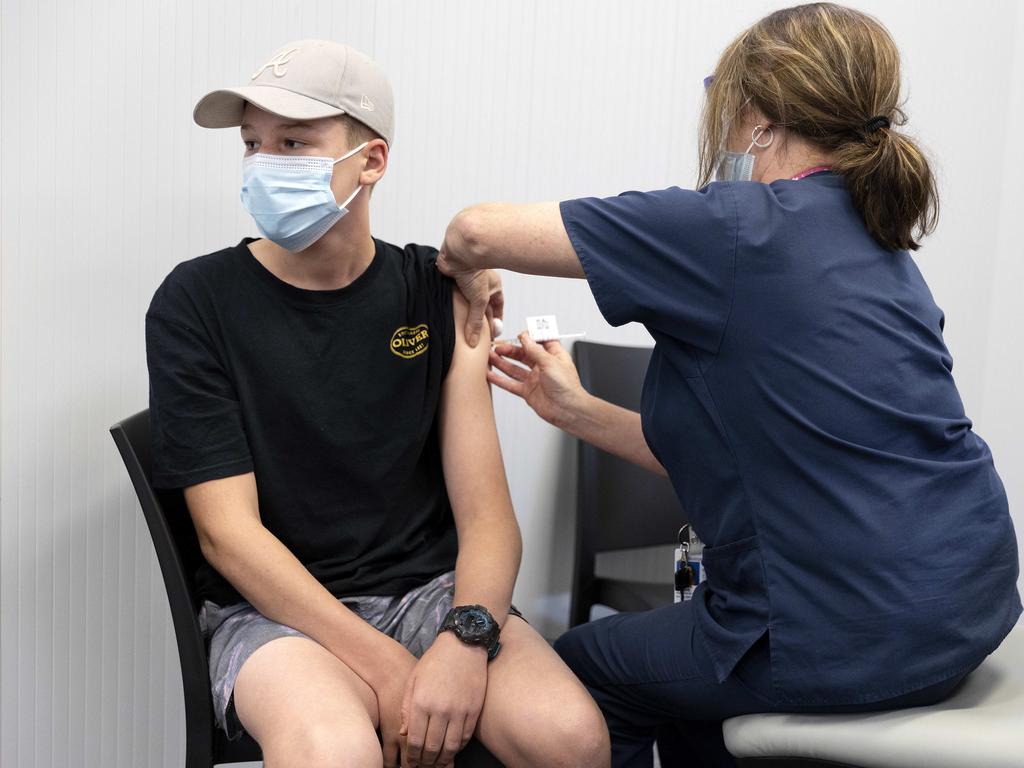
She said while children have a much lower risk of serious illness from Covid, there is a small chance of teenagers developing other conditions if they catch the virus, which a vaccine will help protect against.
One per cent will develop long Covid. Symptoms include brain fog and lethargy.
While rare, Covid can also cause Multisystem Inflammatory Syndrome in Children, which is a condition where different body parts can become inflamed, including the heart, lungs, kidneys, brain, skin, eyes, or gastrointestinal organs.
More Coverage
Originally published as Experts explain why children need to get the Covid-19 vaccine
Read related topics:Explainers




